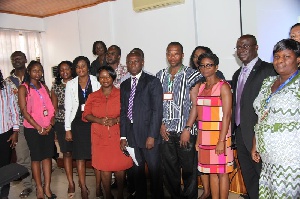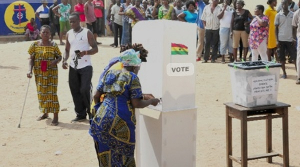Health News of Friday, 4 July 2014
Source: GNA
Health Practitioners upgrade legal knowledge on practice
The Africa Partners Medical Ghana on Thursday began a two-day workshop for health practitioners across the country to update them on current legal issues that could confront them in their daily practices. It is also to increase awareness about legal framework concerning the delivery of health care services in Ghana.
Participants, made up of doctors, pharmacists, nurses, midwives in public, private and quasi-government health institutions, are attending. Dubbed “the Health Worker and the Law –Medico Legal Issues Workshop,” it is intended to build the knowledge of the 50 participating health practitioners on the moral law, the civil law contract, the Patient charter, client services in health services delivery and controversial issues like blood transfusion, abortion and surrogacy.
Africa Partners Medical, Ghana, is the local chapter of Africa Partners Medical, an international organization made up of health practitioners in West and Central Africa and in USA and Canada. Dr Edith Clarke, Board Chairperson of Africa Partners Medical Ghana, said the workshop would help educate the participants on working to prevent needless death and suffering of patients as well as avoiding legal suits that might have a toll on medical practice.
Dr Clarke, who is also the Programme Manager in charge of Occupational and Environmental Health, Ghana Health Services (GHS), said participants would be taken through certain work ethics, laws on mental health and also learn about certain defences available to them when they encounter any legal issue.
She said for 10 years now, the Organisation had been educating health workers, community members, and other restaurant workers both in Kumasi and in Accra on how to provide and ensure the safety of people.
Mr Yaw Brobbey-Mpiani, Deputy Director in charge of Administration, GHS, who took participants through the Patients Charter, said the Charter which has issues pertaining to human rights has its legal basis from Article 33(1) of the 1992 Constitution.
He said with the coming into force of the Patients Charter, over the past decade, many patients no longer swept health abuses under the carpet, but were quick to sue health facilities who breached such contracts through negligence on any other abuses.
He said it was, therefore, important for health personnel, especially the young and new ones to be constantly updated about the charter, so they would work without any legal issues.
He also asked the media and National Commission on Civic Education (NCCE) to collaborate with the GHS to educate patients on the Charter, especially the responsibility of the patients.










